Marathon talks on a new global agreement on climate change looked likely to end on Saturday night in a partial deal that would require all countries to come forward with targets on curbing their greenhouse gas emissions within a little over a year.
The deal looked likely to be struck after a fortnight of negotiations ran into an unscheduled extra day because countries could not agree on a timetable for setting clear national targets on cuts in carbon.
There were angry scenes and bitter rows, underlining the difficulty of getting all of the world's 190 or so countries to agree on a way forward to avoid dangerous levels of global warming. This conference was meant to lay the groundwork for a potential new global deal on climate, to be negotiated within two years.
The key sticking point considered a basic issue: should both rich and poor nations be obliged to come forward with emissions reduction targets in time for a crunch conference in Paris next year when a historic global deal on the climate is supposed to be signed? If successful, the deal would come into force in 2020, and would govern emissions levels through the following decade and beyond.
Scientists say that if the world continues to emit carbon dioxide at current rates, within three decades the "carbon budget" – the total amount that can be poured into the atmosphere without triggering a dangerous climate change of more than 2C – will be used up within three decades. That makes the business of cutting emissions extremely urgent, as at present the global output of carbon is still rising.
China, India, Venezuela and several other developing countries remained bitterly opposed until the final moments to signing up to a timetable that would require them to set out plans to curb their emissions by early next year. They insisted that only developed countries should have to formulate such targets. That was the model used in the Kyoto protocol of 1997, by which the "historical" emitters such as the European Union and the United States bore the only obligations to make cuts. But that agreement quickly ran into trouble and was largely abandoned after its first deadline passed in 2012.
Developed countries argue that previous agreements, struck at a crucial conference in Durban in 2011, require all of the world's major economies – including China, which is the biggest emitter globally, and the world's second biggest economy – to sign up to plans to bring down emissions in line with scientific advice.
Major developed countries such as the US fought hard for a clear timetable that would force all governments to come to the table with their targets by early 2015. That would give enough time for the plans to be assessed before the Paris conference and ensure they are "ambitious" enough.
But as weary delegates wilted after more than 36 hours of non-stop negotiations, many issues remained to be resolved. There was no agreement on the level of cuts needed, how they should be divided up, and how rich countries should provide $100bn a year by 2020 to help poor countries move to a greener economy and adapt to the effects of extreme weather.
Much of the criticism was focused on the Polish hosts of the Warsaw conference, who were accused of putting their national interests – coal, the dirtiest fossil fuel, provides 90% of the country's energy – before their duty to broker an agreement. The talks dragged on far beyond the cut-off point of 6pm on Friday.
Ruth Davis, political director at Greenpeace UK, said: "The potential for a new climate deal in Paris in 2015 is still alive, even after a bitter and divisive conference in Warsaw, which the Polish hosts tried to run as a showcase for the coal industry. The fact that many countries came here with so little to offer the victims of climate change in the aftermath of Typhoon Haiyan has caused wounds which will take some time to heal."
Mohamed Adow, senior climate change adviser at Christian Aid, said: "In the post-2020 agreement, China – together with all countries, rich and poor – must do their fair share of efforts to prevent climate change. But country-bashing won't get us the deal we need. We need to rebuild trust and confidence to help get the equitable outcome that will drive real climate action."
Connie Hedegaard, the EU's climate commissioner, said ministers must return to their capitals and prepare national targets. "Time for all to go home and do the homework: prepare contributions in time to see if the combined effort is enough. The EU is preparing."
She added, referring to the fractious nature of the talks: "I'm sure there are more comfortable ways to Paris, but now we can move forward."
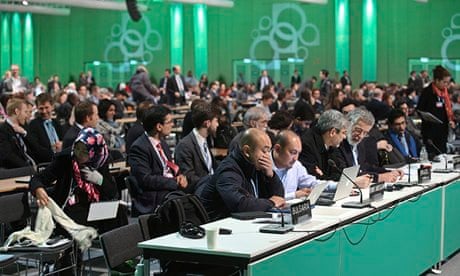
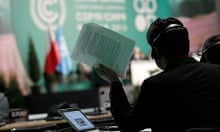

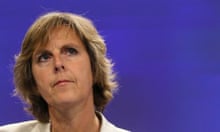
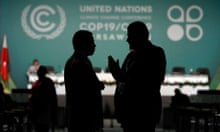
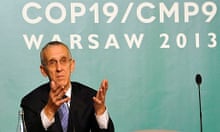
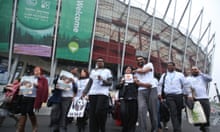
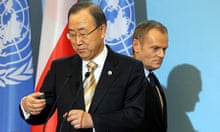
Comments (…)
Sign in or create your Guardian account to join the discussion